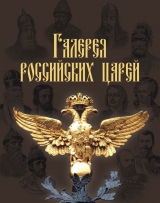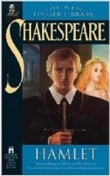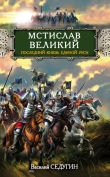
Текст книги "Галерея российских царей"
Автор книги: И. Латыпова
Жанры:
История
,сообщить о нарушении
Текущая страница: 2 (всего у книги 7 страниц) [доступный отрывок для чтения: 2 страниц]
Изяслав Ярославич Izyaslav Yaroslavich 1054-1078

Изяслав – сын Ярослава Мудрого, наследник киевского престола, вступивший на него после кончины отца. Ему должны были подчиняться младшие братья, княжившие в других городах. Первое время братья жили по наказу отца, в мире и согласии, беря в руки оружие только для того, чтобы защитить российские города от набегов внешних врагов. Но через несколько лет началась борьба с родственниками, княжившими в Полоцке, которых поддержали и местные жители. В результате Изяславу пришлось скрыться на время в Польше, где он заручился поддержкой польского короля и вернулся в Киев с войском. На несколько лет власть удалось вернуть, но тут взбунтовался княживший в Чернигове брат Святослав. Изяслав снова искал помощи у польского короля Болеслава, но тот ему отказал. Не помогли ни немецкий император Генрих IV, ни папа Григорий VII. Изяслав так и скитался «по заграницам» до тех пор, пока в 1076 году не скончался Святослав, и только тогда он занял причитающийся ему по праву киевский престол.
Снова города Руси были поделены между братьями, снова настал мир. Изяслав занялся внутренней политикой. Он отменил смертную казнь, вернул Константинополю право назначать киевских митрополитов.
Нарушил покой возмужавший сын Святослава Олег, решивший продолжить искания отца. 3 октября 1078 года дружины Изяслава и Олега Святославича сошлись в битве. В этом бою Изяслав Ярославич погиб.
Izyaslav was a son to Yaroslav the Wise, the heir to the throne of Kiev, who ascended it on the death of his father. The younger brothers, who ruled in other cities, were to obey to him. At first, the brothers adhered to the will of their father, living in peace and harmony and taking up the arms only to defend the Russian cities from the attacks of foreign enemies. However, several years after, a quarrel happened with the relatives who governed Polotsk and were supported by local residents. This resulted in Izyaslav’s escapement to Poland, where he ensured the backing of the Polish king and returned to Kiev with troops. He managed to regain his power for several years, but then his brother Sviatoslav of Chernigov revolted. Izyaslav sought help from the King Boleslaw of Poland again, but was denied. Neither the German Emperor Henry IV nor Pope Gregory VII would help. Izyaslav wandered the foreign countries as a refugee until Sviatoslav’s death in 1076, and only then he took his rightful due, the throne of Kiev.
Once more, the Russian cities were divided between the brothers, and the peace resumed. Izyaslav engaged in domestic policy. He abolished the death penalty, and gave back to Constantinople the right to appoint metropolitans of Kiev.
The peace was disturbed by Oleg, son of Sviatoslav, who had come to age and decided to continue the quest of his father. On October 3, 1078, the troops of Izyaslav and Oleg Sviatoslavich met in a battlefield. Izyaslav Yaroslavich perished in this battle.
Всеволод Ярославич Vsevolod Yaroslavich 1078-1093

Всеволод Ярославич – четвертый сын Ярослава Мудрого, отец Владимира Мономаха. В 1077 году, после смерти брата Святослава, он получил киевский престол, но передал его старшему брату Изяславу, выгнанному из Киева еще при жизни Святослава. Надо отметить, что этот благородный поступок Всеволод совершил только после того, как Изяслав потребовал престол, угрожая польским войском. Всеволод сел княжить в Чернигове, а через год, когда Изяслав умер, Всеволод Ярославич стал великим князем киевским.
Его правление было омрачено набегами половцев и постоянными междоусобными войнами между племянниками и другими многочисленными родственниками, вызванными несовершенством Ярославовых законов наследования, поэтому князю приходилось разрываться между внутренней политикой и военными походами. Вероятно, Всеволоду удавалось сочетать одно с другим, поскольку летописцы отзываются о нем уважительно, да и Владимир Мономах указывал, что его отец знал несколько иностранных языков.
В 1093 году Всеволод, чувствуя, что его силы на исходе, призвал к себе из Чернигова старшего сына и, завещав ему киевский престол, скончался.
Vsevolod Yaroslavich was the fourth son to Prince Yaroslav the Wise, and father to Vladimir Monomakh. In 1077, on the death of his brother Sviatoslav, he received the throne of Kiev, but gave it up to his older brother Izyaslav who was banished from Kiev by Sviatoslav. It should be noted though that Vsevolod committed this noble deed only when Izyaslav demanded the throne, threatening with the invasion of Polish army. Vsevolod got Town Chernigov to govern, and a year later, when Izyaslav died, Vsevolod Yaroslavich became Grand Prince of Kiev.
His reign was troubled by the Polovtsian raids and continuous internecine wars between nephews and numerous other relatives, which was caused by the imperfection of Yaroslav’s laws of inheritance, so that the prince had to be tom between domestic policy and military campaigns. Probably, Vsevolod was clever enough to combine one with another, as the chroniclers referred to him quite respectfully. Vladimir Monomakh pointed out that his father knew several foreign languages.
In 1093, Vsevolod, feeling that his strength was running out, summoned his eldest son from Chernigov, bequeathed to him the Kievan throne, and died.
Святополк Изяславич Sviatopolk Izyaslavich 1093-1113

Святополк до 1093 года княжил в Новгородских землях, киевский престол он занял после смерти Всеволода Ярославича, отца Владимира Мономаха. Владимир Всеволодович Мономах передал ему княжение добровольно как старшему из внуков Ярослава Мудрого.
Правление Святополка началось с необдуманного поступка, приведшего к беде. Он пленил мирных половецких послов, что послужило поводом для очередного нападения половцев на Киев. Осознав ошибку, Святополк пытался искать с ними мира, но кочевники на переговоры уже не шли. Даже женитьба Святополка год спустя на дочери половецкого князя положения не исправила – войны продолжались еще долгое время.
С междоусобицей киевскому князю справиться тоже не удалось. Русь была раздроблена на отдельные княжества. Святополк собирал князей на съезды, там принимались решения о прекращении внутренних войн, о совместной борьбе с половцами, но эти договоренности каждый раз нарушались, причем и самим Святополком.
После смерти великого князя киевский престол не перешел к его детям, поскольку местные жители избрали правителем Владимира Мономаха.
Until 1093, Sviatopolk governed in Novgorod and took the throne of Kiev on the death of Vsevolod Yaroslavich, father to Vladimir Monomakh. Vladimir Monomakh gave him the priority voluntarily, as per rota system, because of Sviatopolk’s being the senior of the grandsons of Yaroslav the Wise.
The reign of Sviatopolk began with an ill-considered action that led to the woe. He captured the peaceful Polovtsian envoys, which served as a pretext for another raid on Kiev by Polovtsy. Realizing his mistake, Sviatopolk tried to seek peace with Polovtsy, but the nomads rejected the negotiations. Even the marriage of Sviatopolk to a Polovtsian prince’s daughter, a year after, failed to redress the situation – the wars still lasted for long.
The Kievan prince could not cope with the feud as well. Rus was split into separate principalities. Sviatopolk summoned the congresses of the princes, the decisions were made on termination of internecine wars and the joint struggle against the Polovtsy, but all these agreements were violated, and Sviatopolk himself infringed upon them too.
On the death of Grand Prince, the Kievan throne was not inherited by his children, for the townspeople elected Vladimir Monomakh as their governor.
Владимир Мономах Vladimir Monomakh 1113-1125

Владимир Всеволодович Мономах рос во времена, когда Русь находилась в состоянии войны и внешней, и внутренней. Постоянно нападали половцы, а родственники-князья бились друг с другом за уделы. После смерти отца Всеволода Ярославича Владимиру по праву мог достаться киевский престол, но он, пытаясь избежать новой усобицы, пригласил княжить Святополка, своего двоюродного брата, старшего в роду, хотя местные жители Святополка не любили и хотели видеть князем Владимира.
В 1113 году Святополк умер, и киевские жители избрали князем Владимира. Время его правления считается лучшим периодом в истории Киевской Руси. Мономаху удалось усмирить половцев, и они долгое время не нападали на Русь. Удельные князья подчинялись власти киевского князя. Стала расцветать культурная жизнь страны. Выросло множество монастырей, храмы украшались фресками. Начали составляться летописи. Сам Владимир создал адресованное потомкам «Поучение», в котором описал собственные достижения и дал советы, как поступать в различных жизненных ситуациях.
Vladimir Vsevolodovich Monomakh grew up during the time when Rus was at war, both foreign and domestic: the Polovtsy were maintaining their attacks, while the prince’s relatives were fighting each other over the apanages. On the death of his father Vsevolod Yaroslavich, Vladimir could rightfully receive the throne of Kiev, but, trying to avoid a new feud, he invited Sviatopolk, his cousin, to rule as the eldest in the family, although the local townspeople did not like Sviatopolk and would prefer to have Vladimir as their prince.
Sviatopolk died in 1113, and the inhabitants of Kiev elected Prince Vladimir, whose reign was considered the best period in the history of Kievan Rus. Monomakh managed to pacify the Polovtsy, and they ceased attacks on Rus for long. The apanage princes were subdued under the authority of Kievan prince. The cultural life of the country started to flourish. The number of monasteries was increasing, the temples were decorated with frescoes. The chroniclers began to compile their records. Vladimir himself wrote the «Instruction» addressed to the posterity, in which he described his own achievements and gave advice on how to act in various situations.
Мстислав Владимирович Mstislav Vladimirovich 1125-1132

Мстислав Владимирович – старший сын Мономаха – после смерти отца занял киевский престол. Его правление было недолгим, но славным.
Половцы, укрощенные Мономахом, узнав о его смерти, напали на Русь, но Мстислав, получивший ратный опыт рядом с отцом, сумел отбить набег. Следующим испытанием для молодого князя стал сильный голод – последствие очень холодной зимы 1128 года, в которую вымерзли озимые культуры. От голода и холода погибло очень много людей, особенно в Новгородских землях. Те, кто остался в живых, старались уйти в другие, дальние государства.
За время правления Мстислав одержал много военных побед. Ему удалось присоединить земли кривичей, чего не смогли добиться его предшественники, успешно воевал он и в Литве.
При жизни Мстислава удельные князья как-то соблюдали мир, после же его смерти в 1132 году этот порядок разладился, Русь распалась на самостоятельные княжества.
Mstislav Vladimirovich was the eldest son to Monomakh who took the throne of Kiev on the death of his father. His reign was short, and yet glorious.
The Polovtsy, once tamed by Monomakh, on hearing of his death attacked Rus again, but Mstislav, who gained the military experience following his father, managed to repel the raid. The next challenge for the young prince became the famine, which was a consequence of a very cold winter of 1128, when the frost killed the winter crops. Because of frosts and hunger, many people died, especially in the Novgorod lands. Those who survived tried to relocate to other, distant countries.
During his reign, Mstislav won many military campaigns. He was able to annex the lands of the tribe Krivichi, which could not be achieved by all his predecessors, and he waged successful war in Lithuania.
During the life of Mstislav, the princes maintained the peace, however reluclantly, but on his death in 1132, this order disintegrated, Rus came apart into independent principalities.
Ярополк Владимирович Yaropolk Vladimirovich 1132-1139

Ярополк Владимирович – сын Владимира Мономаха, как и Мстислав, с юных лет участвовал в боях против половцев, имел славу отважного воина и талантливого полководца. Но этого было недостаточно, чтобы управлять государством.
В 1132 году, после смерти Мстислава, жители Киева выбрали Ярополка князем. Ярополк же, наверняка из лучших побуждений, предложил княжество сыну Мстислава Всеволоду. Этот благородный поступок вызвал у других княжичей неудовольствие и подтолкнул их к беспорядкам. Снова начались междоусобицы, и единая Русь распалась.
Ярополку постоянно приходилось сражаться. Но и воинская удача тоже изменила великому князю. В боях он допускал ошибки, вел себя опрометчиво, проигрывал сражения. Собрать Русь воедино ему так и не удалось.
Некоторую славу уже престарелому князю принес его поход против поляков, победа в котором принесла Ярополку богатую добычу. Этот поход стал и последним сражением князя. По возвращении из него Ярополк Владимирович скончался, оставив наследникам обессиленное, слабое государство.
Yaropolk Vladimirovich was the other son to Vladimir Monomakh, and, like Mstislav, he took part in the battles against the Polovtsy since a young age, and had the reputa tion of a brave soldier and a talented war commander. But that was still not enough to govern a country. In 1132, on the death of
Mstislav, the residents of Kiev chose Yaropolk as their prince, while Yaropolk, most probably full of best intentions, suggested that the throne should go to Vsevolod, Mstislav’s son. This act of nobleness caused the displeasure of other princes and pushed them to launching the disorders. The feuds started again, and once united Rus collapsed.
Yaropolk had to keep fighting all the time. But the military success, too, failed with the Grand Prince. Waging the wars, he made mistakes, acted recklessly, and got the battles lost. He did not succeed in collecting Rus together.
The prince reaped some fame when being already aged, due to his victorious campaign against the Poles, which brought to Yaropolk rich loot. This also put an end to his battles: on returning, Yaropolk Vladimirovich died, leaving for his heirs an exhausted, weakened country.
Всеволод Ольгович Vsevolod II Olgovich 1139-1146

Всеволод Ольгович, князь черниговский, еще при жизни великого князя киевского Ярополка Владимировича не раз пытался захватить уделы сыновей и внуков Мономаха. А после смерти киевского князя он силой отобрал престол у его наследника, Вячеслава Владимировича, брата Ярополка, успевшего посидеть на княжеском престоле всего один месяц. С этого момента противостояние двух кланов – сыновей Владимира Мономаха и их племянников, сыновей Мстислава Всеволодовича – только усилилось. Потомки Мономаха собирали дружины, чтобы выгнать Всеволода из Киева, а тот в ответ отправлял войска в уделы Мономаховичей, чтобы отобрать их владения.
Всеволод оказался умелым управленцем. В условиях междоусобицы ему удавалось и сохранять киевский престол, и отражать нападения неприятеля на внешние рубежи, и помогать своему зятю, польскому герцогу, наводить порядок у себя в государстве. На склоне лет, почувствовав недомогание, Всеволод назначил своим наследником брата – Игоря Ольговича – и, стремясь избежать раздоров, заставил других князей ему присягнуть. Получив желаемое, великий князь умер успокоенным, не зная, какую совершил ошибку, отобрав у киевлян право самим избрать князя.
Vsevolod Olgovich, Prince of Chernigov, repeatedly attempted to seize the heritage of sons and grandsons of Monomakh – even when Yaropolk Vladimirovich, Grand Prince of Kiev, was still alive. And on the death of Kievan prince, Vsevolod took the power away from its right successor, Vyacheslav Vladimirovich, Yaropolk’s brother, who managed to sit on the throne only for one month. Since then, the confrontation between the two clans – the sons of Vladimir Monomakh and their nephews, sons of Mstislav Vsevolodovich – was only getting more intensive. The descendants of Monomakh gathered the squads to oust Vsevolod from Kiev, while the latter in response sent troops into the apanages of Monomakhovichs to take away their estate.
Vsevolod was a skillful governor. Under the conditions of civil strife, he managed to secure the throne of Kiev for himself, as well as to parry the enemical attacks on the external borders and help his son-in-law, a Polish duke, to restore the order in his realm. On the decline of his years, feeling unwell, Vsevolod appointed his brother Igor Olgovich as his successor and, in order to avoid the feud, forced other princes to vow allegiance to him. His wish was fulfilled, and the grand prince died in peace, without knowing that it was wrong to deprive the citizens of Kiev of their right to elect a prince.
Изяслав Мстиславич Izyaslav Mstislavich 1146-1154

Изяслав Мстиславич – внук Владимира Мономаха, перед смертью Всеволода Ольговича вместе с другими князьями давал обет верности наследнику престола Игорю Ольговичу, но жажда верховной власти в нем победила порядочность – Изяслав, воспользовавшись недовольством жителей новым князем, захватил престол, и киевляне убили князя Игоря.
Сегодня уже невозможно с уверенностью сказать, было ли это решением народа, или Изяслав повлиял на умы граждан, но на репутации новоиспеченного великого князя так и осталось это пятно. Родственники, и без того недовольные Изяславом из-за захвата им престола, не простили ему убийства Игоря, и собрались на него войной. Изяслав вынужден был бежать из Киева. В изгнании он смог найти помощь только у венгерского короля, но и это ему не помогло – Изяслав проиграл войну и по решению князей отправился княжить во Владимир, а в Киеве должен был остаться Вячеслав Владимирович. Однако договоренность действовала недолго – князья снова перессорились из-за власти. В результате киевляне, всегда благоволившие к Изяславу, избрали его в князья, и он вернулся в столицу. Всю дальнейшую жизнь Изяславу пришлось провести в сражениях за киевский престол. Местные жители были безгранично преданы своему князю и горевали по его кончине.
Izyaslav Mstislavich was a grandson to Vladimir Monomakh, and before the death of Vsevolod Olgovich, together with the other princes, vowed the allegiance to Igor Olgovich, heir to the throne. However, the desire for supreme power prevailed upon his decency; and Izyaslav, taking advantage of the common dissatisfaction with the new prince, seized the throne, while the people of Kiev killed Prince Igor.
Nowadays, it is impossible to tell with certainty whether the people so decided, or it was Izyaslav who influenced the minds of the citizens, but a stain on the reputation of the newly-created
Grand Prince persisted. His relatives, who were disgruntled enough at Izyaslav because he usurped the throne, could not forgive him the murder of Igor, and launched a campaign against him. Izyaslav was forced to flee from Kiev. In exile, he was unable to find the support other than the Hungarian king’s, which did not help him much though: Izyaslav lost the war and the princes sent him to rule in Town Vladimir, while Kiev got Vyacheslav Vladimirovich to stay in. However, the agreement operated not for long – the princes, again, quarreled for the supreme power. As a result, the people of Kiev, who always favoured Izyaslav, elected him as their prince, and he returned to the capital. Izyaslav had to spend the whole rest of his life in the battles for the throne of Kiev. Local residents were infinitely devoted to their prince, and grieved for his death.
Юрий Долгорукий Yuriy Dolgorukiy 1154-1157

Юрий Долгорукий – один из наиболее известных князей древней Руси, сын Владимира Мономаха. Во время правления Изяслава он постоянно пытался отобрать у того киевский престол. Возможно, такому стремлению есть и объективное оправдание – по законам того времени верховную власть получал старший в роду, а Изяслав лишь приходился сыном старшему брату Юрия Владимировича. Соответственно, Долгорукий считал, что племянник несправедливо обошел его.
До Киева Юрий Владимирович княжил в Ростове. Он стремился укрепить границы от внешней опасности, и с этой целью активно строил города. В его княжение возникли Москва, Переславль-Залесский, Кострома.
Летописцы рассказывают, что киевское княжение Долгорукого было успешным. Ему удалось достичь относительного мира с соседями, наладить потерянные отношения Руси с Византией. Однако, несмотря на эти достижения, князь Юрий никогда не мог опереться на киевлян. Местные жители были недовольны правлением Долгорукого. Народное недовольство вылилось в бунт в день его смерти – киевляне разграбили дом князя, напали на его ближайшее окружение. Вдове Юрия с детьми едва удалось спастись бегством в Суздаль.
Yuriy Dolgorukiy (The Long-Armed) was a son to Vladimir Monomakh and one of the most famous princes of ancient Rus. During the reign of Izyaslav, Yuriy constantly tried to take away the throne of Kiev from him. Perhaps, this desire had an objective justification: the laws of that era gave the supreme power to the eldest in the family, while Izyaslav only was a son to an elder brother of Yuriy Vladimirovich. Accordingly, Dolgorukiy supposed that his nephew got round him without a fair reason.
Before Kiev, Yuriy governed Rostov. He sought to strengthen the borders against external threat, and was actively building the fortified towns to that effect. During his reign, towns Moscow, Pereslavl-Zalesskiy, and Kostroma appeared.
The chroniclers reckoned that the Kievan period of Dolgorukiy was successful. He was able to achieve relative peace with the neighbours, as well as re-establish once-lost relationships between Rus and Byzantium. However, despite these achievements, Prince Yuriy could never rely on the people of Kiev. Local residents were unhappy with his reign. Discontent of the people led to a riot on the day of his death: Kiev citizens sacked the house of the prince and attacked his milieu. Yuriy’s widow with children barely managed the escapement to town Suzdal.








